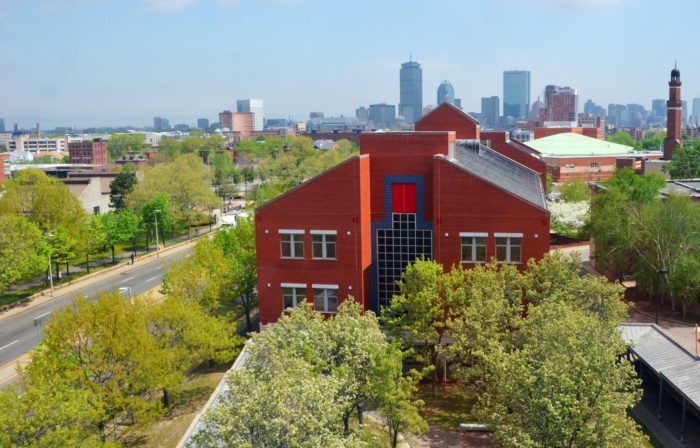
“We were the Wi-Fi and technology connection, but once we shut down, they have no way to get them.”
With higher ed headlines having been dominated by news of Harvard’s decision to conduct courses remotely for the entire academic year and MIT’s announcement that only 40% of students will return to campus in the fall, it’s easy to forget that there are other institutions that made these sorts of tough decisions back in early June.
For community colleges, transparency and safety continue to be top priorities in planning for the fall semester. To that end, many of the Commonwealth’s community colleges solicited student feedback, created reopening teams, and pulled together comprehensive plans for reopening—all before July and in ways that make the opaque actions of many private schools look downright irresponsible.
“We will be first by being last,” explained Dr. David Podell, president of MassBay Community College. “We’re in no rush to bring administrators and staff back to campus because there’s no reason to. We’ve been able to do our instruction and our student support services and our business operations remotely, from our homes. And I see no reason to change that and endanger people’s safety.”
The reopening plans for Greater Boston’s community colleges all look very similar, in part because they all adhere to Massachusetts state guidelines for reopening places of higher education.
Anyone who enters campus will have to sign in and sign out, and everyone must remain six feet apart and masked at all times. All campus buildings in use will be thoroughly and frequently cleaned.
As for lessons, 80 or 90% of classes will be conducted remotely, while some, primarily labs that require in-person instruction, will take place on campus. Most of these labs are for students going into the health care profession. With this cautious balance, administrators are hopeful that if there is another spike in the area, in-person services can be quickly halted.
“The 80% remote piece will allow us to switch over if there’s a spike, so the students’ educations aren’t disrupted,” Bunker Hill Community College President Pam Eddinger said.
Unlike many four-year schools, most community colleges have been offering online courses for years and have had time to work out the kinks. Middlesex Community College, which will be 95% remote in the fall, has been offering online programs for more than 20 years and has already won multiple awards for its programs.
“Faculty are currently developing rich, high-quality online learning environments that will provide all our students with a broad array of courses,” MCC Provost and Vice President of Academic and Student Affairs Phil Sisson said in a statement. “We have a long history of award-winning online programs, and this fall will be no exception as we greatly expand our online offerings and services to further meet students’ needs.”
Despite their online prowess, community colleges face some daunting challenges in reopening. One of the biggest concerns is that, unlike four-year colleges, they don’t have dorms. Their students commute to campus, often using public transportation, and are spread across multiple neighborhoods, some of which have been coronavirus hotspots.
“Having [dorms] allows those colleges and universities to control the population way better than we can,” Eddinger said.
If the city spikes again, community college students may be among those hardest hit. Overall, 42% of all undergraduate students are enrolled in community colleges, many of them from minority backgrounds and first-generation or low-income families. Community colleges serve 44% of Black and 56% of Hispanic students in the country, while at Roxbury Community College and BHCC, a majority of students are Black or Hispanic, and qualify for Pell grants.
COVID-19’s disproportionate effect on low-income communities and communities of color is well-documented, and administrators at multiple colleges said this was a significant factor in the decision to stay primarily remote.
Many community college students also often work part time or full time while attending school, and many are parents and single parents. The logistics of dealing with childcare, work, and school under normal circumstances are already demanding, but during a pandemic the challenge is multiplied.
“Our average age is 30 and many of our students are parents, they may be single parents. And one thing that really hasn’t been fully articulated is what’s going to happen with the public schools,” RCC President Dr. Valerie Roberson said. “And so the remote schedule assists those students to be able to continue their education and take care of whatever, you know, is decided for public school students.”
Furthermore, more than 40% of community college students are food insecure, and a significant number don’t have access to the computers or hotspots necessary for remote learning. Community colleges in the area have implemented a range of programs to deal with these issues, including sending students Amazon and Stop and Shop gift cards, having groceries delivered to students, buying and loaning out hundreds of computers, and providing access to hotspots—but there are still gaps.
“They’re trying to homeschool the kids and they’re trying to do their homework,” Eddinger said. “A lot of them don’t have computers, hotspots, or good Wi-Fi. We were the Wi-Fi and technology connection, but once we shut down, they have no way to get them.”
Other support services, such as advising, crisis counseling, and career counseling, have moved online, and colleges have been calling and emailing students to ensure that they are aware of all the programs available to them. Other times, they call just to check in.
“They’re students that have been disadvantaged in previous educational endeavors, so that sometimes they come with a greater need for academic support and, you know, other kinds of social service support,” Roberson explained. “We’re accustomed to dealing with the higher need.”
All the administrators interviewed for this article agreed that community colleges have an advantage in coping with the pandemic in that they are used to helping students through difficult circumstances.
“At a community college, as opposed to a liberal arts college, a four-year college, they need us,” Podell said. “The student has to do all the work, they have to learn … but we will do everything under the sun to get them to the finish line, because this means for them moving up, moving into a new career, realizing their dream. It means, often, for some students, entering the middle class, gaining financial stability in their lives.”
Community colleges help students gain financial stability in part by being extremely low-cost. In the 2015-16 academic year, the average tuition for community colleges was $3,435 for full-time students compared to $32,405 for private four-year colleges. And with financial aid and grants, many students don’t pay full price.
Administrators also noted that, long before COVID-19, community colleges were underfunded for years. Now, the sudden added costs of training teachers in online learning, conducting extensive cleaning, buying PPE, and helping students with technology and food needs are straining budgets.
At BHCC, Eddinger said they received $8.2 million through the CARES Act. Half of that went directly to students, while the other $4.1 million will be used to help cover costs in the coming year. But she warned that it likely won’t be enough.
“Every time someone comes in to do an overall cleaning … it’s multiple thousands of dollars, it’s $15,000, $20,000 a pop,” Eddinger said. “The $4.1 million is not going to be enough. That’s the reality of it.”
For more funding, community colleges are relying on a second stimulus bill and hoping that the state budget, despite a projected $6 billion deficit, will allot sufficient funding for higher education. Through it all, the system’s leaders are left hoping that the uncertainty of the pandemic and high unemployment rates could encourage more students to consider community college and to appreciate the affordability and flexibility it offers.
“It could be a good opportunity to get even more people into the community college system,” said Linda Brantley, the North Shore Community College executive director of public relations. “We are very affordable. We are close to home.”
This article was produced in collaboration with the Boston Institute for Nonprofit Journalism as part of its Pandemic Democracy Project.
HELP DIGBOSTON WEATHER THIS STORM AND CONTINUE PROVIDING ARTICLES LIKE THIS ONE
Grace is an NYU sophomore studying Journalism and French

